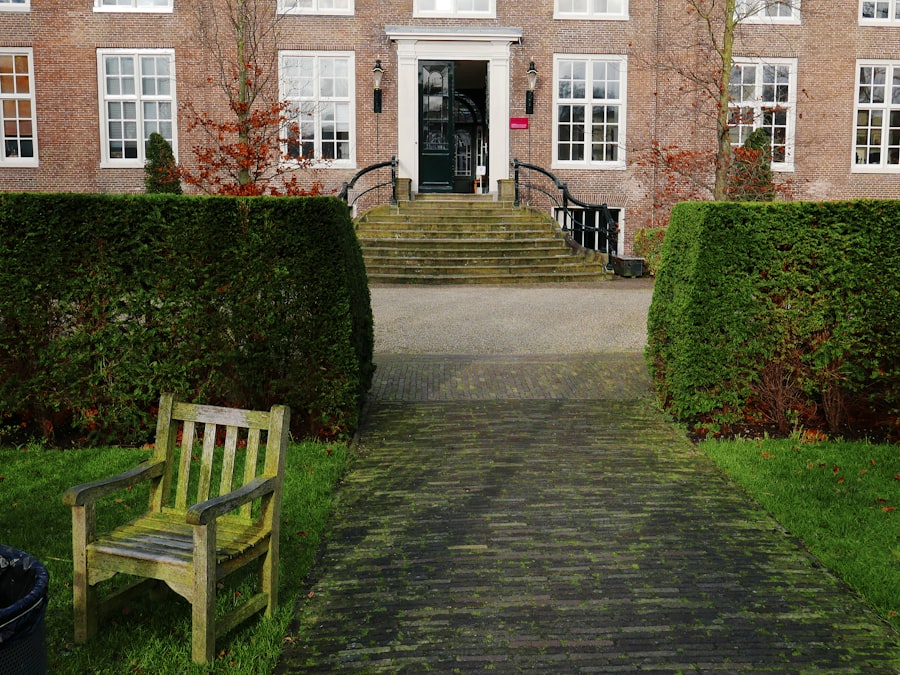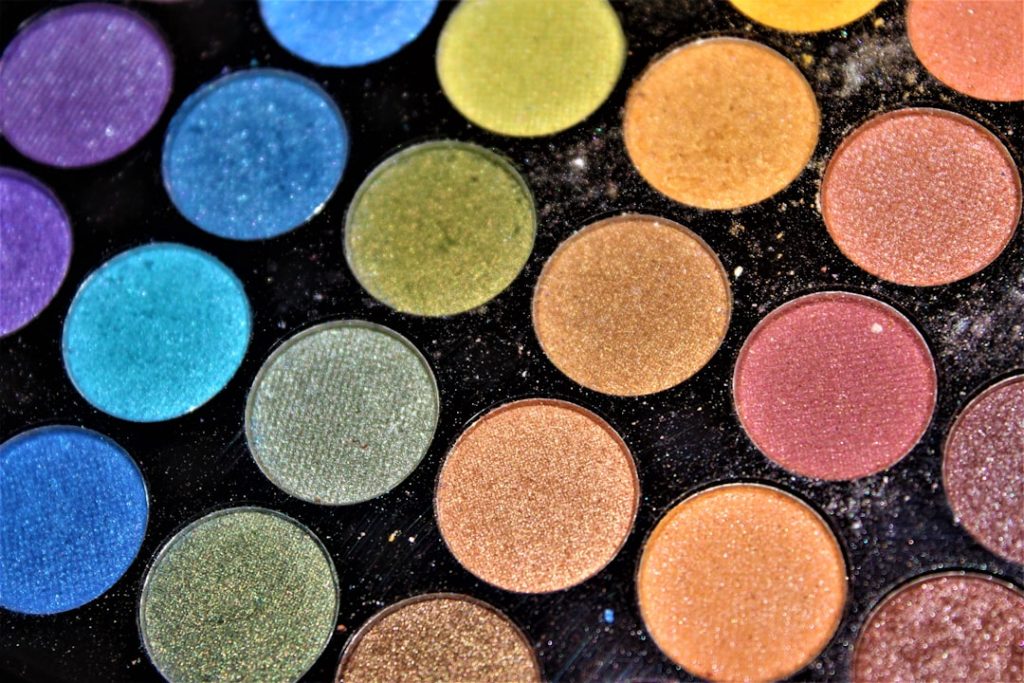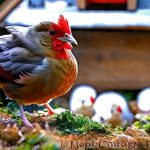Chickens have specific requirements for managing hot weather due to their physiological characteristics. Unlike humans, chickens lack sweat glands and regulate their body temperature primarily through panting. This makes them particularly vulnerable to heat stress and heat stroke, especially during periods of extreme heat.
To maintain the health and well-being of chickens in hot weather, several key factors must be addressed:
1. Shade and shelter: Chickens require access to shaded areas to escape direct sunlight and reduce heat exposure. 2.
Ventilation: Proper air circulation is crucial for cooling and preventing the buildup of heat and humidity in chicken coops. 3. Cool water: Fresh, cool water should be readily available to help chickens stay hydrated and regulate their body temperature.
4. Adjusted feeding schedules: High temperatures can affect chickens’ appetites and digestion, necessitating modifications to feeding routines. 5.
Cool treats: Offering refrigerated fruits or vegetables can provide temporary relief from heat. 6. Dust bath areas: These allow chickens to clean themselves and cool off simultaneously.
7. Monitoring: Regular observation for signs of heat stress is essential, enabling prompt intervention if necessary. By addressing these specific needs, chicken owners can effectively manage their flock’s health during hot weather conditions and reduce the risk of heat-related illnesses.
Table of Contents
- 1 Providing shade and shelter for your chickens
- 2 Using fans and misters to cool the chicken coop
- 3 Offering cool treats and fresh water to your chickens
- 4 Adjusting feeding and watering schedules for hot weather
- 5 Monitoring your chickens for signs of heat stress
- 6 Implementing a dust bath area for your chickens
- 7 FAQs
- 7.1 What are some signs that my chickens are overheated?
- 7.2 How can I keep my chickens cool in the summer?
- 7.3 What are some ways to provide shade for my chickens?
- 7.4 How can I improve ventilation in my chicken coop?
- 7.5 Should I provide a dust bath for my chickens in the summer?
- 7.6 What should I do if I notice one of my chickens showing signs of heat stress?
Key Takeaways
- Chickens need access to shade and shelter to protect them from the heat
- Fans and misters can help cool the chicken coop during hot weather
- Offering cool treats and fresh water can help chickens stay hydrated and cool
- Adjust feeding and watering schedules to avoid the hottest parts of the day
- Monitor chickens for signs of heat stress and provide a dust bath area for them to cool off
Providing shade and shelter for your chickens
Creating Shade in the Chicken Coop
One of the most important things you can do for your chickens in hot weather is to provide them with adequate shade and shelter. This will help protect them from the direct sun and provide a cooler environment for them to rest and relax. You can create shade in the chicken coop by using tarps, umbrellas, or natural vegetation such as trees or shrubs.
Ensuring Proper Ventilation and Shelter
It’s important to ensure that the shade is well-ventilated to allow for airflow and prevent the buildup of heat. Additionally, providing shelter in the form of a well-ventilated coop or a covered run can give your chickens a place to escape the sun and stay cool.
Optimizing the Location of the Chicken Coop
In addition to providing shade and shelter, it’s important to consider the location of the chicken coop. Placing the coop in a shaded area or positioning it so that it receives shade during the hottest part of the day can help keep the temperature inside the coop more comfortable for your chickens. You can also consider adding insulation or reflective materials to the coop to help regulate the temperature.
By providing adequate shade and shelter for your chickens, you can help them stay cool and comfortable during hot weather.
Using fans and misters to cool the chicken coop

In addition to providing shade and shelter, using fans and misters can help cool down the chicken coop during hot weather. Fans can help circulate air and reduce the temperature inside the coop, while misters can provide a fine spray of water to help lower the ambient temperature. It’s important to position fans and misters strategically to ensure even distribution of air and water throughout the coop.
Additionally, it’s important to monitor the humidity levels inside the coop when using misters, as excessive humidity can be detrimental to the health of your chickens. When using fans and misters, it’s important to consider the safety of your chickens. Make sure that electrical cords are safely secured and out of reach of your flock, and that misters are set up in a way that prevents water from pooling on the ground.
Regular maintenance of fans and misters is also important to ensure that they are functioning properly and not posing any safety hazards. By using fans and misters strategically, you can help lower the temperature inside the chicken coop and provide a more comfortable environment for your flock during hot weather. Fans and misters can be effective tools for cooling down the chicken coop during hot weather.
Fans can help circulate air and reduce the temperature inside the coop, while misters provide a fine spray of water to help lower the ambient temperature. It’s important to position fans and misters strategically to ensure even distribution of air and water throughout the coop. Additionally, it’s important to monitor humidity levels when using misters, as excessive humidity can be detrimental to the health of your chickens.
Safety considerations are also important when using fans and misters – make sure that electrical cords are safely secured and out of reach of your flock, and that misters are set up in a way that prevents water from pooling on the ground. Regular maintenance of fans and misters is also important to ensure that they are functioning properly and not posing any safety hazards.
Offering cool treats and fresh water to your chickens
In hot weather, it’s important to offer your chickens cool treats and fresh water to help keep them hydrated and provide some relief from the heat. Cool treats such as frozen fruits or vegetables can be a refreshing snack for your flock, while fresh water is essential for keeping them hydrated. You can also consider adding electrolytes to their water to help replace essential minerals lost through panting in hot weather.
It’s important to monitor their water intake during hot weather, as chickens may drink more water than usual to stay cool. Make sure that their water containers are kept clean and filled with fresh water at all times. Additionally, providing multiple water stations throughout the coop or run can help ensure that all of your chickens have access to water when they need it.
By offering cool treats and fresh water, you can help keep your chickens hydrated and provide some relief from the heat during hot weather. During hot weather, offering cool treats and fresh water is essential for keeping chickens hydrated and providing some relief from the heat. Cool treats such as frozen fruits or vegetables can be a refreshing snack for your flock, while fresh water is essential for keeping them hydrated.
Adding electrolytes to their water can also help replace essential minerals lost through panting in hot weather. It’s important to monitor their water intake during hot weather, as chickens may drink more water than usual to stay cool. Make sure that their water containers are kept clean and filled with fresh water at all times, and consider providing multiple water stations throughout the coop or run to ensure that all of your chickens have access to water when they need it.
Adjusting feeding and watering schedules for hot weather
In hot weather, it’s important to adjust your chickens’ feeding and watering schedules to accommodate their changing needs. High temperatures can affect their appetite and digestion, so it’s important to offer smaller, more frequent meals throughout the day rather than one large meal. This can help prevent overeating and reduce the risk of digestive issues in hot weather.
Additionally, it’s important to monitor their water intake and ensure that they have access to fresh water at all times. Chickens may drink more water than usual in hot weather to stay cool, so it’s important to keep their water containers clean and filled with fresh water throughout the day. Providing multiple water stations throughout the coop or run can also help ensure that all of your chickens have access to water when they need it.
By adjusting feeding and watering schedules for hot weather, you can help support the health and well-being of your flock during the summer months. Adjusting feeding and watering schedules is important for supporting the health of your chickens in hot weather. High temperatures can affect their appetite and digestion, so offering smaller, more frequent meals throughout the day rather than one large meal can help prevent overeating and reduce the risk of digestive issues.
It’s also important to monitor their water intake and ensure that they have access to fresh water at all times. Chickens may drink more water than usual in hot weather to stay cool, so keeping their water containers clean and filled with fresh water throughout the day is essential. Providing multiple water stations throughout the coop or run can also help ensure that all of your chickens have access to water when they need it.
Monitoring your chickens for signs of heat stress

Recognizing the Signs of Heat Stress
If you notice any of these signs in your flock, it’s crucial to take immediate action to help cool them down. Heat stress can lead to serious health issues if left unchecked, so prompt intervention is vital.
Ways to Cool Down Your Chickens
There are several ways to help cool down chickens experiencing heat stress. One effective method is to provide a shallow pan of cool water for them to stand in. You can also use fans or misters to lower the temperature inside the coop, or offer cool treats such as frozen fruits or vegetables to help provide some relief from the heat. Additionally, ensure that they have access to fresh water at all times and monitor their water intake closely.
Preventing Heat Stress in Your Flock
By monitoring your chickens for signs of heat stress and taking proactive measures to cool them down when necessary, you can help prevent serious health issues related to high temperatures. Remember, monitoring your chickens for signs of heat stress is crucial for their health and well-being during hot weather.
Implementing a dust bath area for your chickens
Implementing a dust bath area for your chickens is an important part of keeping them healthy and comfortable in hot weather. Dust bathing is a natural behavior for chickens that helps them stay clean and control parasites such as mites and lice. In addition to its hygiene benefits, dust bathing also helps chickens regulate their body temperature by allowing them to remove excess oil from their feathers.
To create a dust bath area for your chickens, you can use a shallow container filled with fine sand or dusting powder such as diatomaceous earth. Place the container in a shaded area of the coop or run where your chickens have easy access to it. You may also consider adding herbs such as lavender or mint to the dust bath area, as these have natural insect-repelling properties.
By implementing a dust bath area for your chickens, you can help them stay clean, control parasites, and regulate their body temperature naturally during hot weather. Implementing a dust bath area for your chickens is an essential part of keeping them healthy and comfortable in hot weather. Dust bathing is a natural behavior for chickens that helps them stay clean and control parasites such as mites and lice.
In addition to its hygiene benefits, dust bathing also helps chickens regulate their body temperature by allowing them to remove excess oil from their feathers. To create a dust bath area for your chickens, you can use a shallow container filled with fine sand or dusting powder such as diatomaceous earth. Place the container in a shaded area of the coop or run where your chickens have easy access to it.
Adding herbs such as lavender or mint to the dust bath area can also provide natural insect-repelling properties. By implementing a dust bath area for your chickens, you can help them stay clean, control parasites, and regulate their body temperature naturally during hot weather. In conclusion, understanding the needs of chickens in hot weather is crucial for ensuring their health and well-being during the summer months.
Providing shade and shelter, using fans and misters strategically, offering cool treats and fresh water, adjusting feeding and watering schedules, monitoring for signs of heat stress, and implementing a dust bath area are all important steps you can take to support your flock during hot weather. By taking proactive measures to address their specific needs in hot weather, you can help keep your chickens comfortable and healthy throughout the summer months.
If you’re looking for ways to keep your chickens cool in the summer, you may also be interested in learning about how to create the ideal floor for your chicken coop. This article on Poultry Wizard provides valuable tips on the best flooring options for your coop to ensure the comfort and health of your chickens.
FAQs
What are some signs that my chickens are overheated?
Some signs that your chickens may be overheated include panting, holding their wings away from their bodies, reduced egg production, and lethargy.
How can I keep my chickens cool in the summer?
You can keep your chickens cool in the summer by providing plenty of shade, ensuring good ventilation in the coop, offering cool water to drink, and providing frozen treats such as fruits and vegetables.
What are some ways to provide shade for my chickens?
You can provide shade for your chickens by using tarps, umbrellas, or natural shade from trees or shrubs. It’s important to make sure the shade is available throughout the day as the sun moves.
How can I improve ventilation in my chicken coop?
You can improve ventilation in your chicken coop by adding windows, vents, or fans to promote air circulation. This helps to prevent the buildup of heat and humidity inside the coop.
Should I provide a dust bath for my chickens in the summer?
Yes, providing a dust bath for your chickens in the summer is important as it helps them to keep cool and control parasites. You can use a shallow container filled with sand, dirt, and diatomaceous earth for them to dust bathe in.
What should I do if I notice one of my chickens showing signs of heat stress?
If you notice one of your chickens showing signs of heat stress, it’s important to move them to a cooler area with plenty of shade and offer them cool water to drink. If the symptoms persist, it’s best to consult a veterinarian for further advice.
Meet Walter, the feathered-friend fanatic of Florida! Nestled in the sunshine state, Walter struts through life with his feathered companions, clucking his way to happiness. With a coop that’s fancier than a five-star hotel, he’s the Don Juan of the chicken world. When he’s not teaching his hens to do the cha-cha, you’ll find him in a heated debate with his prized rooster, Sir Clucks-a-Lot. Walter’s poultry passion is no yolk; he’s the sunny-side-up guy you never knew you needed in your flock of friends!







